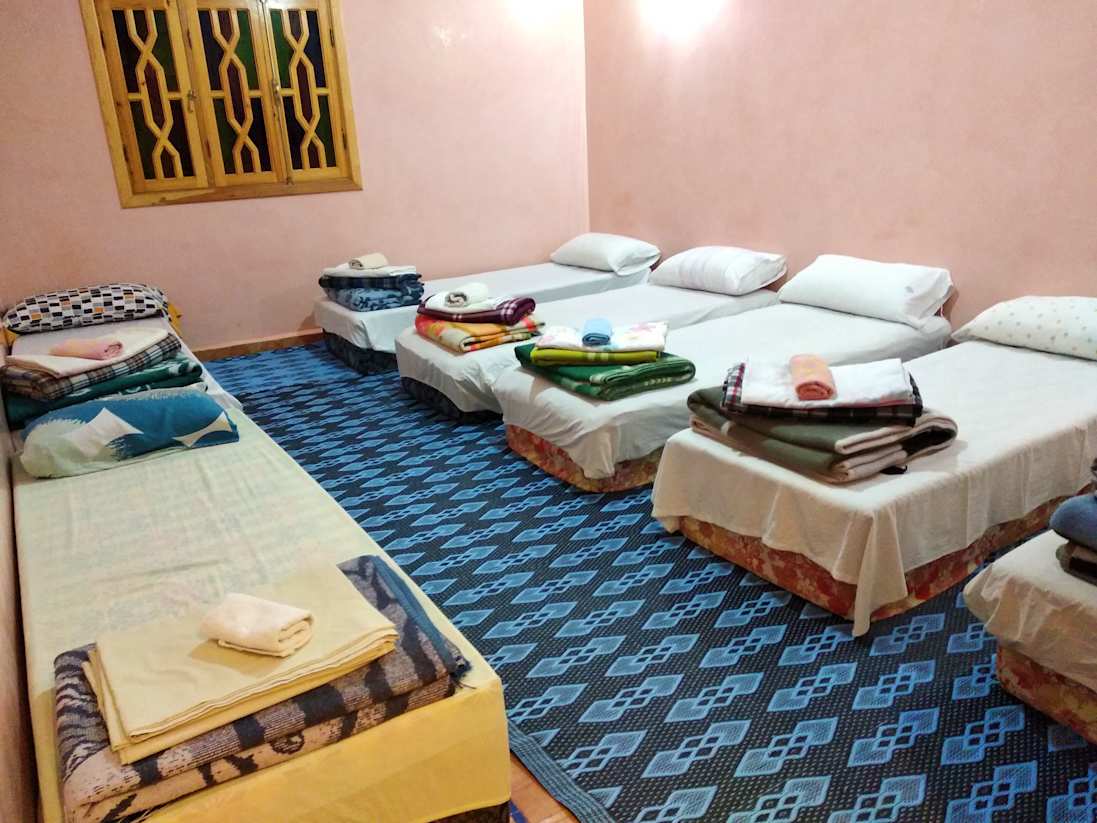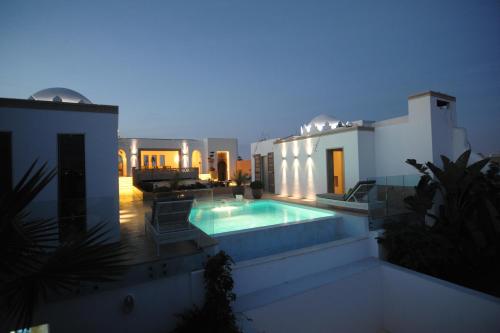Morocco’s capital, Rabat, is often overlooked by tourists. They may stop – but they don’t stay.
It doesn’t necessarily have the allure of the more famous Marrakech or Fez
True, it has some sights, but not in the density or grandeur that visitors can find in other cities and so, for those on shorter trips, it slides down the list of places to see.
In truth, though, Rabat offers an interesting snapshot of the development of Morocco. It is really three cities in one.
It is an ancient city, with the first development starting in the 12th century. The walls around the old town went up and a fortress was constructed for protection and as a base of attack against Spain (then Iberia). But the expansion of the city was suddenly halted when its leader died and Rabat fell into decline for several centuries.
It is also a colonial city, with the French turning it into a protectorate in the 20th century. New expansive and beautiful sectors were built in Rabat with palaces and government buildings. They brought life back to the area – and also an influx of wealth and European sophistication.
It is also a modern capital city, with the Moroccan king choosing to base the government here when the country became independent in 1956. This status increased the development and influx of money to Rabat and the amount of new buildings is noticeable from the moment you get off at the train station.
Because of this fascinating mix of history, parts of Rabat have been listed as a World Heritage Site and the title given to the listing is telling in itself – “Rabat, Modern Capital and Historic City: a Shared Heritage”.
However, this doesn’t necessarily mean that it’s worth spending too much time here as a tourist. I didn’t find it to be as interesting as some of the other large cities or small relaxed towns.
My recommendation would be to spend only a day or two in Rabat to see it for yourself and visit some of the main sights.
There are some tours that will be able to show you the best spots or help you get there from where you’re staying:
If you’re wondering what is worth visiting, here are some suggestions of places that are part of the World Heritage Site listing.
Chellah
The old fortress of Chellah, on the edge of the main part of the city, is actually a remnant of the settlements on this land before Rabat was first developed in the 12th century. It probably had its origin in Roman times and was a thriving commercial centre connecting Europe and North Africa.
It was abandoned in 1154 but has been surprisingly well preserved.
You can walk there from the Ville Nouvelle and the fortress is easy to spot as you approach it. Inside, there are ruins of the main sections of the city that are all easily accessible.
Make sure you look for the birds that have taken over one section and built their nests on the top of the ruined buildings.
Chellah is open at these times:
October to March: 9:00 – 17:00
April to September: 9:00 – 19:00
Ramadan: 9:00 – 15:00
A standard ticket is 70dh (US$7.05) for adults, 50dh (US$5.05) for 15-25 years old, and 30dh (US$5.05) for children 7-14 years old.
Hassan Tower
Hassan Tower is probably the best-known sight in Rabat – mainly because of the odd feel to it. This was going to be the site of an enormous mosque and construction started in 1195.
Although the plan was to build the largest minaret and mosque in the world, work stopped suddenly on the site when the sultan died four years later. Although there were never any attempts to continue the work, what had already been built was left there as it was.
You can walk through the columns that would have supported the roof of the mosque and get a great view of the tower itself. At the back of the site is a more modern (and completed) mosque.
Hassan Tower is open daily from 8:30 – 22:45.
Admission to Hassan Tower is free.
Kasbah of the Udayas
This kasbah was built around the same time as Hassan Tower and has survived the test of time – including centuries of virtual abandonment – well. The walled fortress sits on the coastline just outside the medina and is easy to spot.
The beautiful walls catch the sun in the afternoon and it’s a popular spot for local Moroccans to take a walk and relax.
There are two main sections of the Kasbah. The lower level is a quiet and cool garden, filled with trees and seats in the shade. The upper section has a small maze of alleys with painted blue houses.
If you can navigate your way through the streets, you’ll come out on a large terrace with views across the water.
The Kasbah of the Udayas is open daily.
Entrance is free.
Medina
Like almost all of Morocco’s historic cities, Rabat has a medina full of market shops and little riads to stay in. It is smaller than the more famous medinas and not as bustling.
The disadvantage of the Rabat Medina is that there is not as much to see and you won’t find as many sights and smells around each corner. The advantage is that the industry here is not reliant on tourism so you won’t be hassled every minute and you can get a decent snapshot of local life.
Jardins d’Essais
The final sight I want to mention is the botanical gardens, known as Jardins d’Essais. Honestly, they are not particularly spectacular and I wouldn’t recommend going out of your way to visit them. They seem to be used more by local residents as a spot for a lunch break or a nap in the shade.
They are an excellent representation of the French influence during the 20th century, though. They have a uniquely European layout but feel slightly odd because they are filled with a collection of North African plants.
The new city that the French built during this period was one of the most ambitious in this part of the continent and these gardens are a nice reminder of that.
Jardins d’Essais is open Tuesday to Sunday from 8:00 – 19:00.
It is closed on Mondays.
Admission is free.
THE BEST ACCOMMODATION IN RABAT
You can find traditional riads in the Rabat medina, or more modern accommodation in the city centre.
BACKPACKER

There aren’t many hostels in Rabat but you’ll find nice dorm beds at Kayezer.
BUDGET

Although it’s not the cheapest, I think Dar Ouezzani offers the best value budget option.
BOUTIQUE

For something quite spectacular, Euphoriad needs to be seen to be believed!
LUXURY

And when it comes to a modern five-star luxury hotel, I would recommend The View Hotel.
Thanks for your tips. We have only visited Marrakech but loved it. We would love to do a more extended visit to Morocco, including Rabat and we will be sure to visit these places.
Let me know if you ever make it there and what you think. I am not sure Rabat is a highlight of Morocco but there are some interesting things to see if you’re passing through for a day or so.
Hi Michael, great tips there. I’m like most, always ignored Rabat, but these places, especially the Chellah, seem very attractive. Any accommodation recommendations in Rabat?
Thanks!
There are lots of nice little riads in the medina and I would recommend using one of them. You can search for them on the booking sites and find one that works for you. I stayed at one called Dar Aida and it was great, so there’s an option! 🙂
Hi Micheal
Cheers for the tips! We are headed to Rabat just cruising down the coast. Will check out the spots you have mentioned. Many thanks!
I love the photos of the storks – they probably came from Poland, We have lots of storks in Poland and when they fly away in Autumn we say that they went to Africa to Morocco. I wonder if people here say the opposite 😉 – great photos and article – we will probably visit Rabat soon, right now we booked places in Essaouira